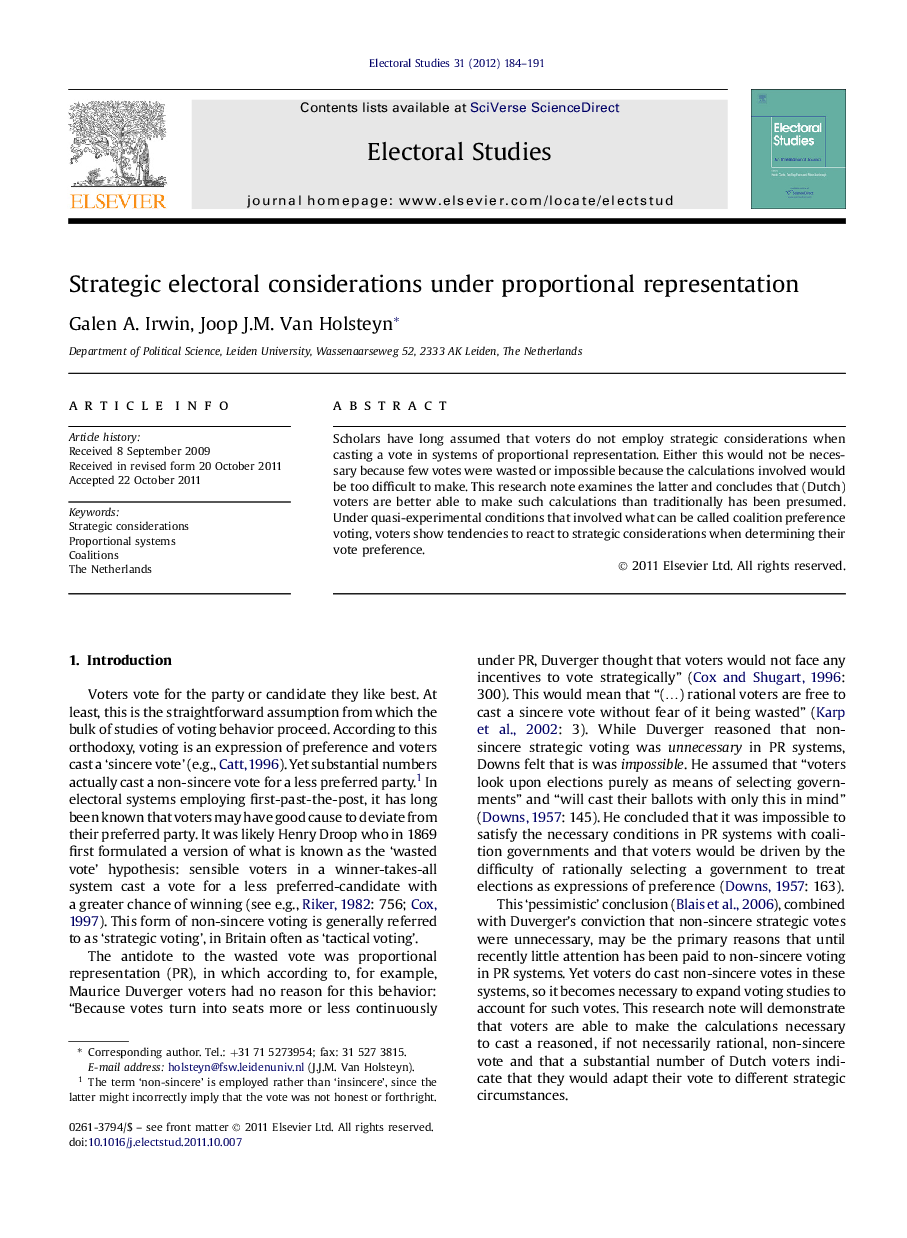| Article ID | Journal | Published Year | Pages | File Type |
|---|---|---|---|---|
| 1052116 | Electoral Studies | 2012 | 8 Pages |
Scholars have long assumed that voters do not employ strategic considerations when casting a vote in systems of proportional representation. Either this would not be necessary because few votes were wasted or impossible because the calculations involved would be too difficult to make. This research note examines the latter and concludes that (Dutch) voters are better able to make such calculations than traditionally has been presumed. Under quasi-experimental conditions that involved what can be called coalition preference voting, voters show tendencies to react to strategic considerations when determining their vote preference.
► Outcome considerations are important in systems with PR. ► Voters have more information concerning conditions necessary for coalition preference vote than has been assumed. ► Voters let coalition preferences influence their choice of party.
